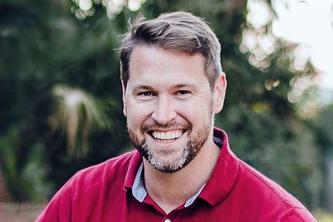
The Pentagon Papers sparked a constitutional crisis in the 1970s and is now at the center of The Post, which is set for nationwide theatrical release this week. At the epicenter of the legal battle over the Pentagon Papers were the journalists who wanted to publish it and the Nixon administration that wanted to suppress it, arguing that publishing would jeopardized national security.
What followed was a U.S. Supreme Court decision that had lasting impact. Jane Kirtley, J.D., a professor of media ethics and law at the Hubbard School of Journalism and Mass Communication, weighs in on how the Pentagon Papers and ensuing court case helped shape the future of journalism and how it's a case that's still relevant to this day.
“It's impossible to overestimate the significance of the Pentagon Papers case for First Amendment jurisprudence and the public's right to know. The U.S. Supreme Court firmly placed on the government the burden of justifying any attempt to censor the press, rather than the other way around.
This presumption of a right to publish exists nowhere else in the world. Think what it would mean if the government could silence the media simply by invoking the words ‘national security,’ leaving the press to make the case for why they should be allowed to publish.
It would be a first step toward tyranny.
The legacy of the Pentagon Papers continues to be vital today. Both of the newspapers involved in that case (The New York Times and The Washington Post) have published controversial classified information in recent years, for which they've been honored by their peers and vilified by several administrations and their supporters.
The Pentagon Papers case reminds us that many of the major First Amendment battles of the 1960s through 1980s were fought by the mainstream news media. Although this did solidify the rights of the press, the public was the ultimate beneficiary because their right to know was protected.
It's not entirely clear whether today's media moguls understand that a robust First Amendment is not only essential to serving the public interest -- it's also a prerequisite to making money. And if they don't understand that, they may not take the risks, publish, and defend their legal right to do so.”
Jane Kirtley is the Silha Professor of Media Ethics and Law at the Hubbard School of Journalism and Mass Communication, where she also directs The Silha Center for the Study of Media Ethics and Law. She is an affiliated faculty member at the University of Minnesota Law School. Prior to coming to Minnesota, Prof. Kirtley was executive director of The Reporters Committee for Freedom of the Press in Washington, D.C. for 14 years. A frequent speaker both in the United States and abroad, her research interests include comparative media law, data privacy and First Amendment theory, as well as the legal and ethical challenges facing the contemporary news media when reporting on national security.
Contact Information:
[email protected]
612-625-9038 (office)
612-812-1043 (cell)
- Categories:
- Law and Policy





